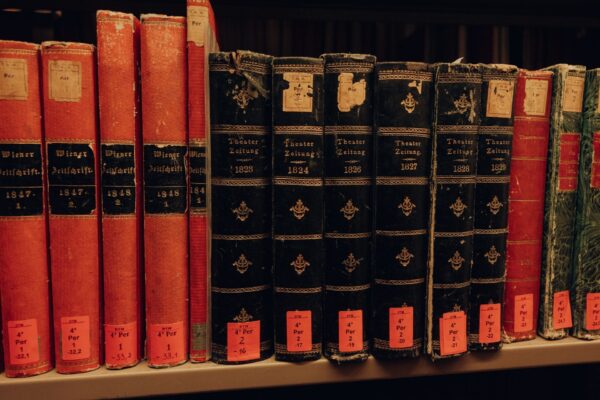The Critics' Collection
of the German Theatre Museum
The DTM's archive of reviews includes newspaper reviews from German-speaking countries since 1946, which are organised by production title. Further reviews can also be found in estates, theatre almanacs and journals in the library collection.

Collection history
Theatre criticism is an important means of presenting a theatre event to the public. The scope and positioning in the print medium also say a lot about the social status of the theatre at the time. A favourable review can be just as revealing a source of information as a scathing review: The different critics' positions not only reflect personal opinions but, in addition to their informative content, can provide insight into dominant fashions of the time, artistic innovations or controversies. As sources, they answer questions about the respective status of theatre, aesthetic developments as well as stylistic means and the topicality of content.
History of theatre criticism
From a historical perspective, theatre criticism is still a relatively recent achievement: with the beginning of the mass distribution of newspapers in the 19th century and the regular publication of printed newspapers, theatre reviews became an integral part of the growing middle classes' consumption. They often served to provide information about the current programme and were used by theatre agents to promote plays. From the 20th century onwards, the press landscape became increasingly independent and the voice of critics gained in importance. Thanks to the wide distribution of the medium, printed criticism attracted attention to theatre life far beyond urban areas.